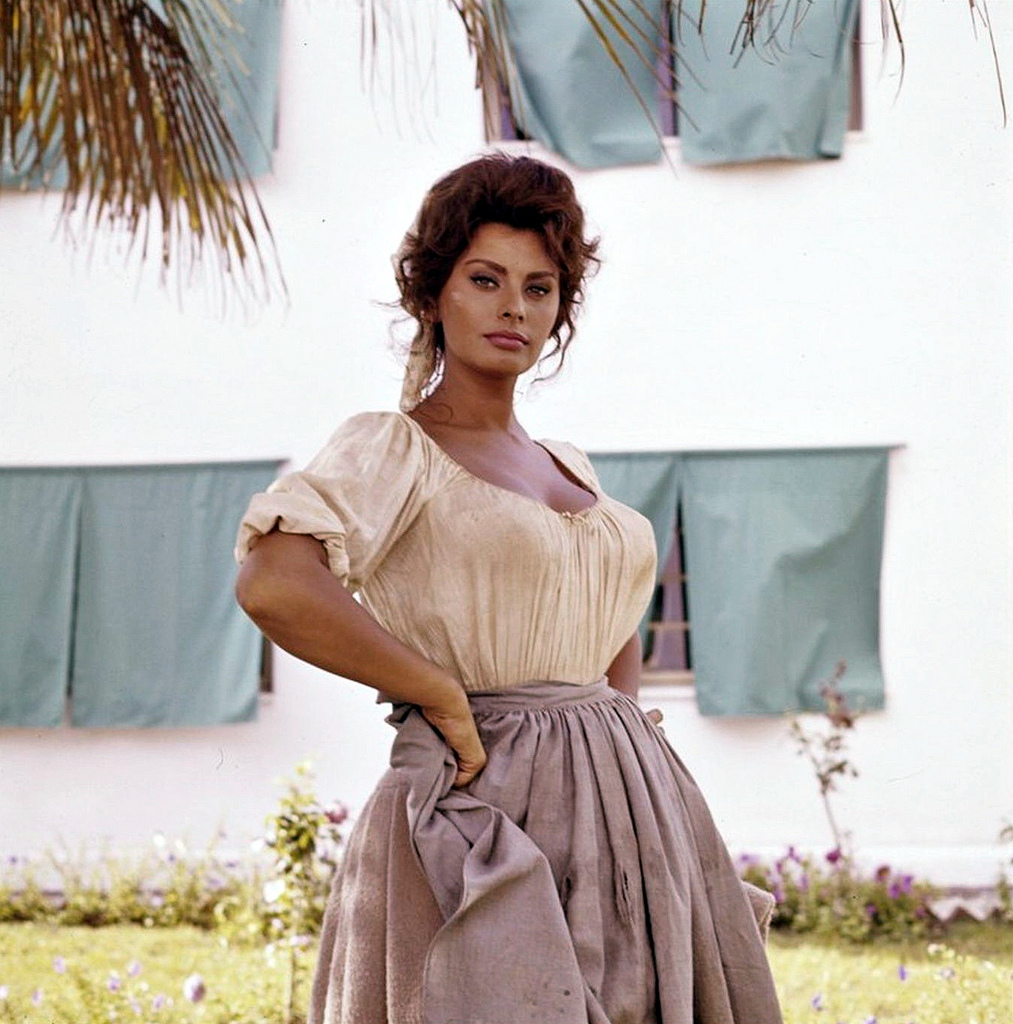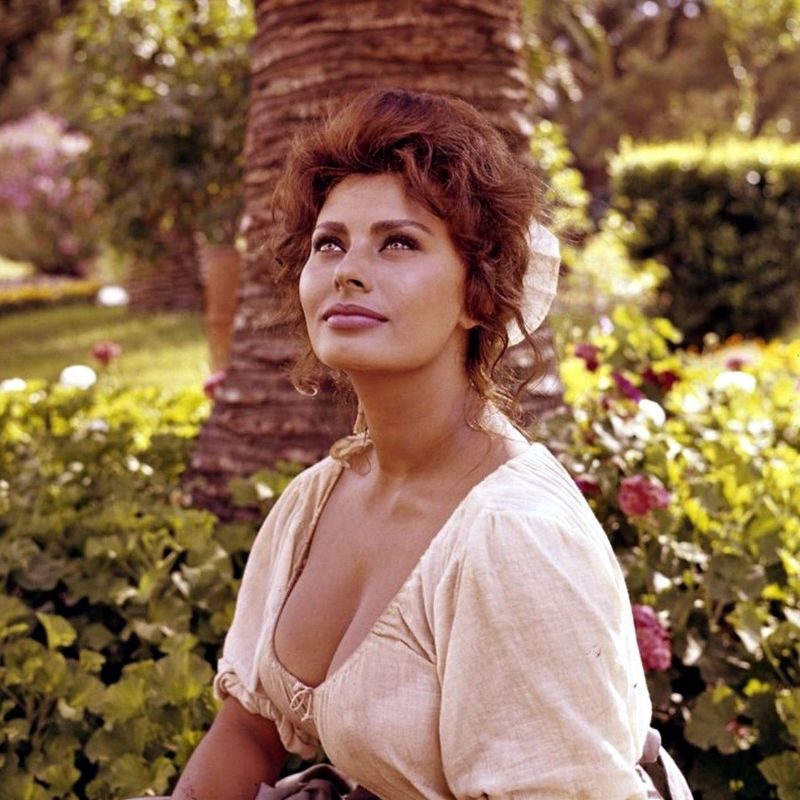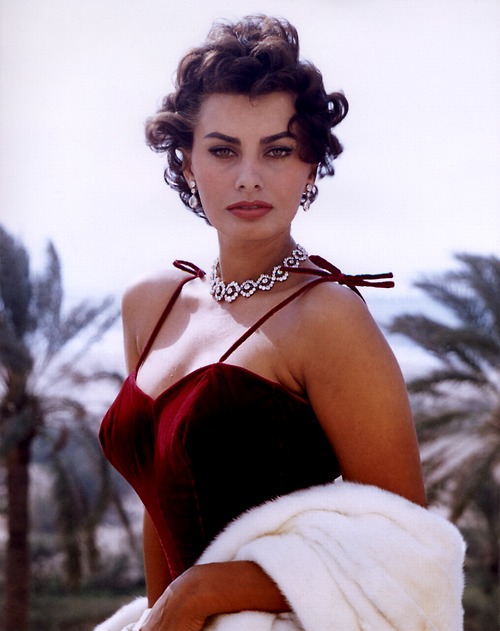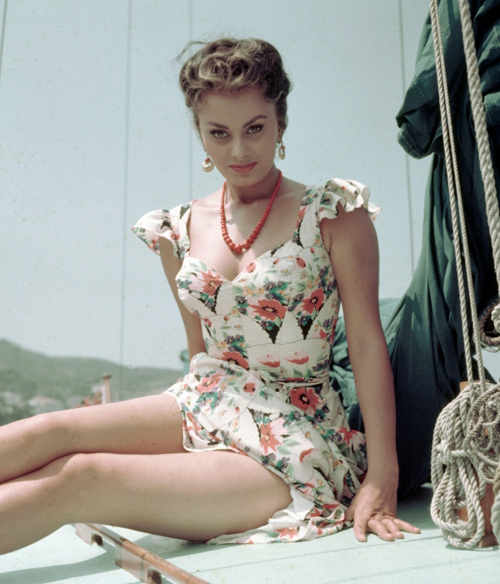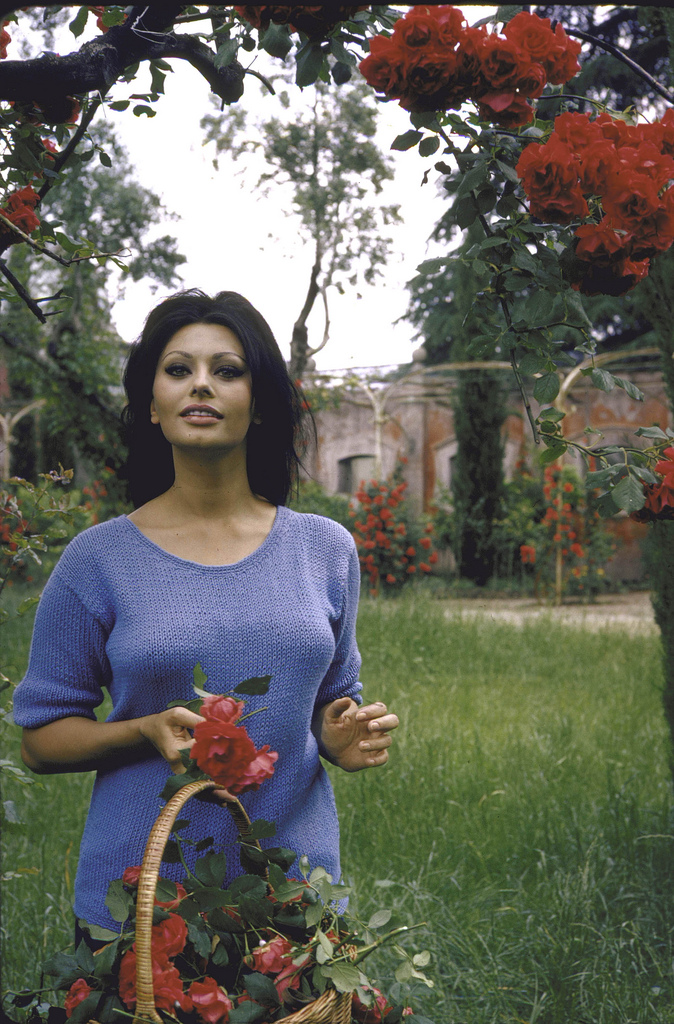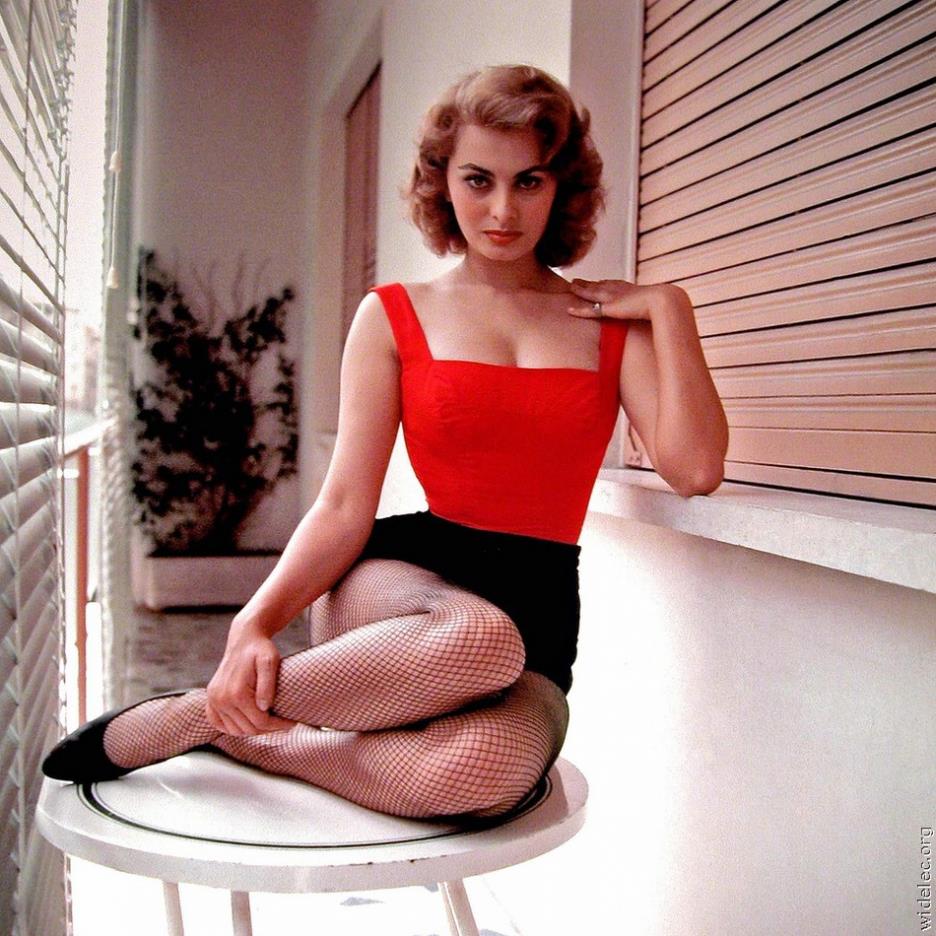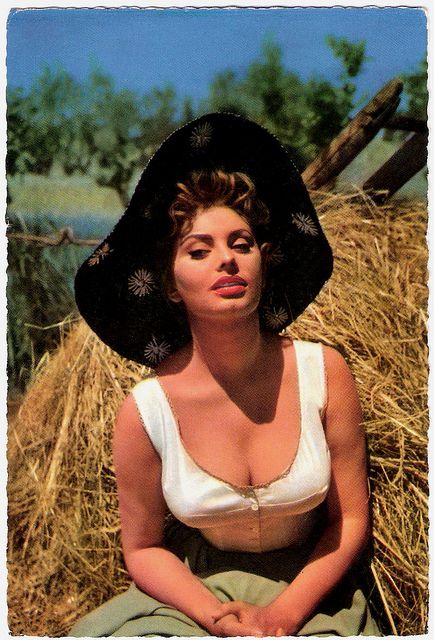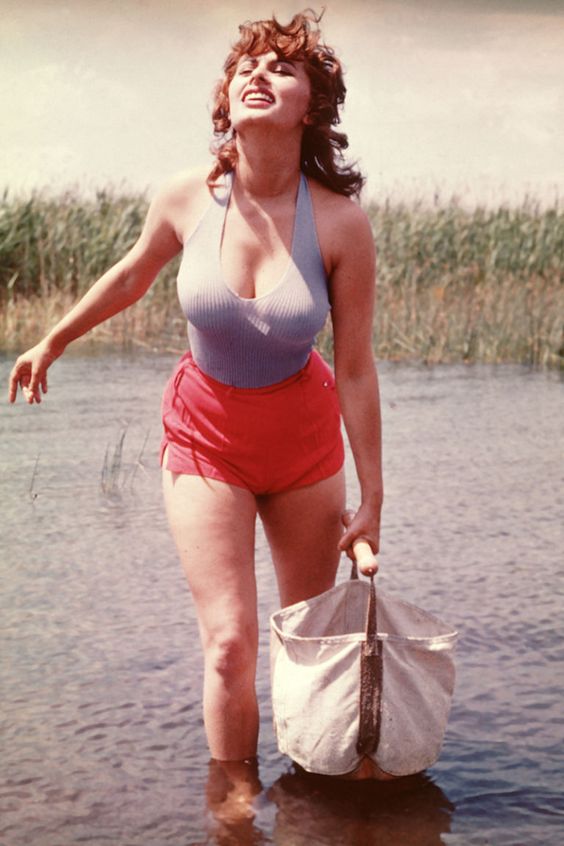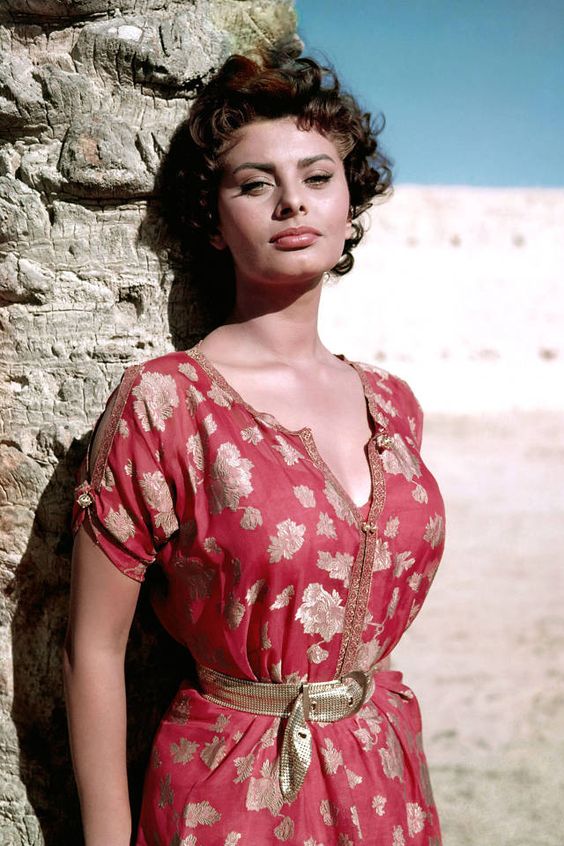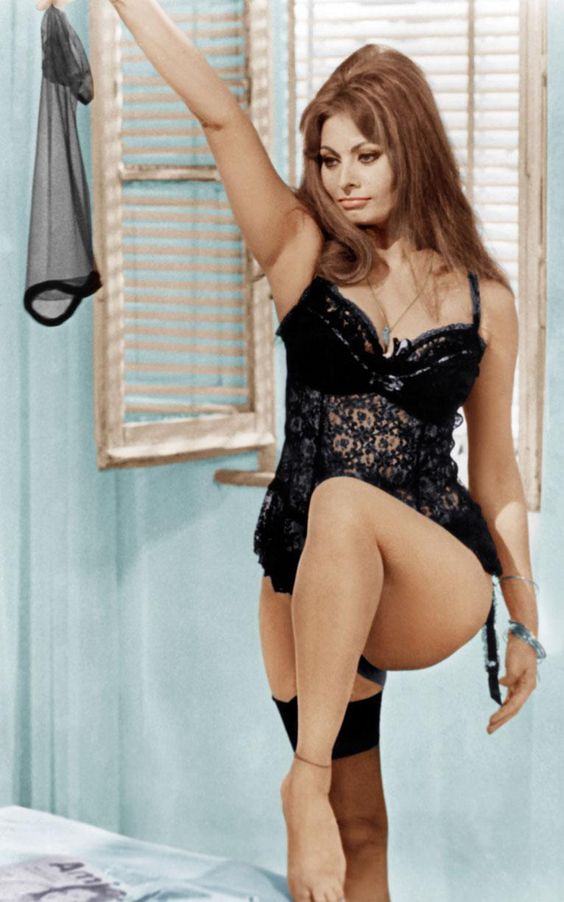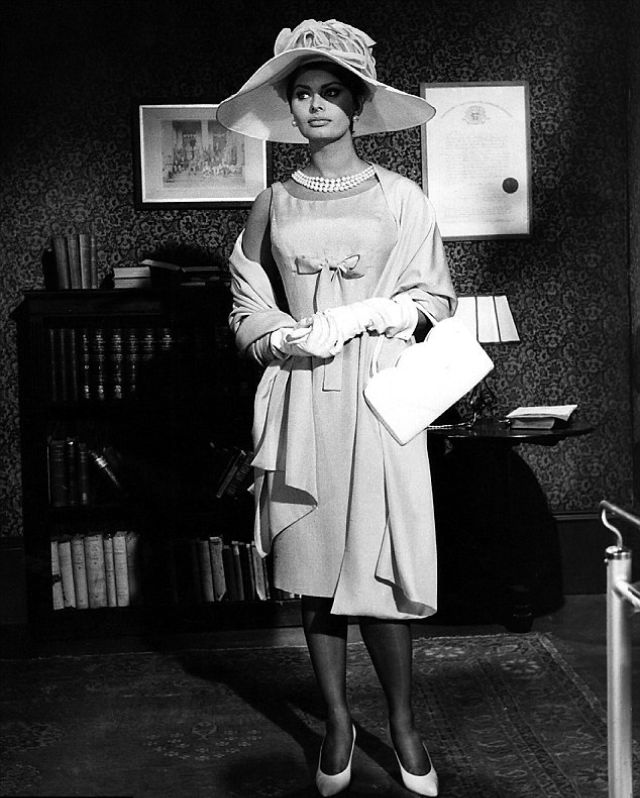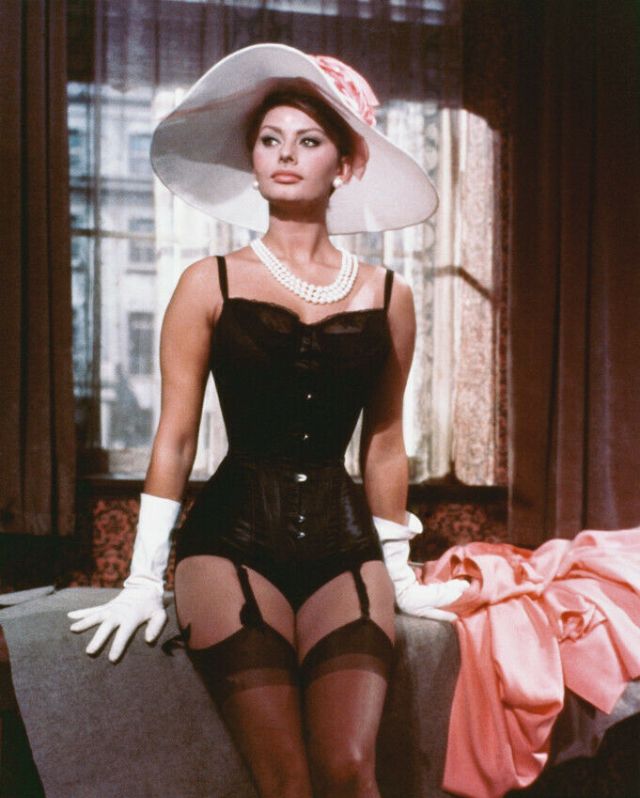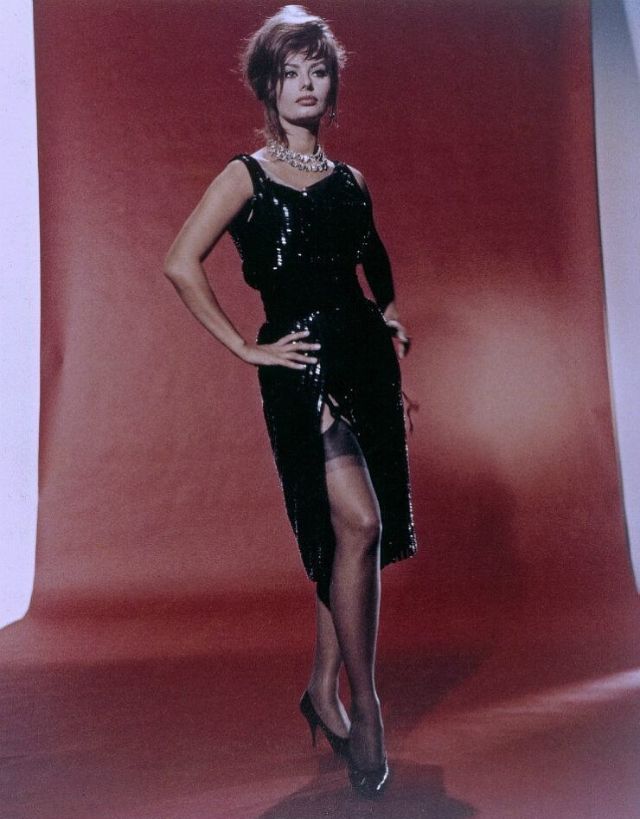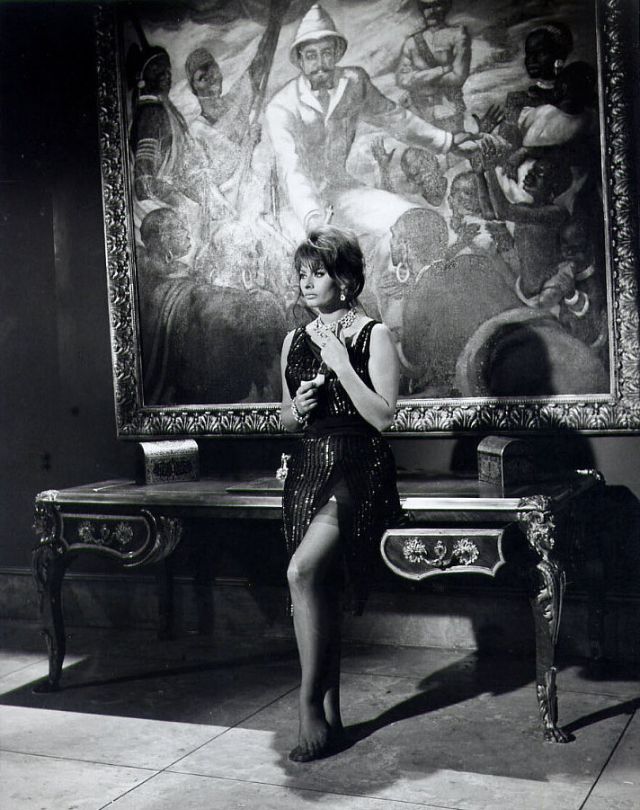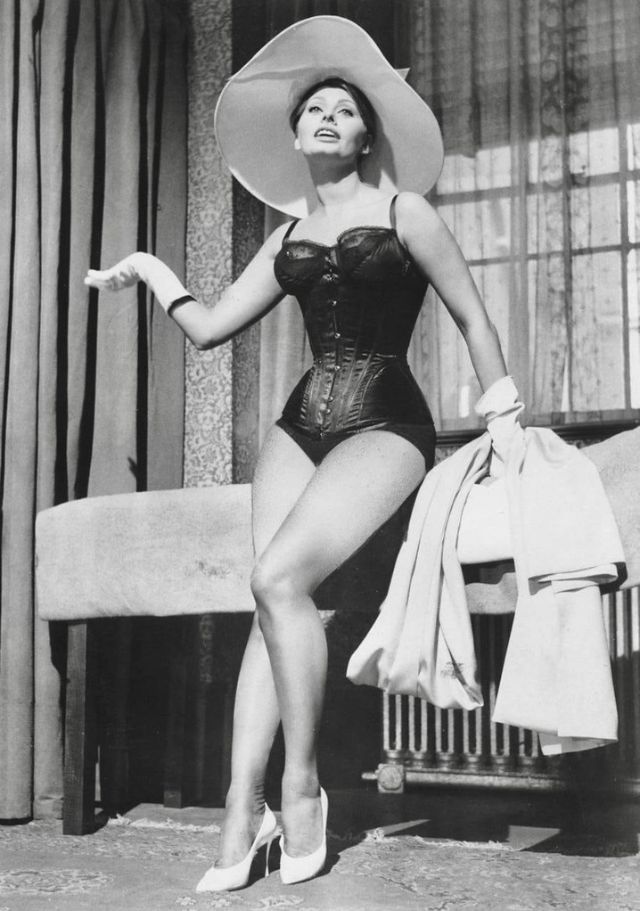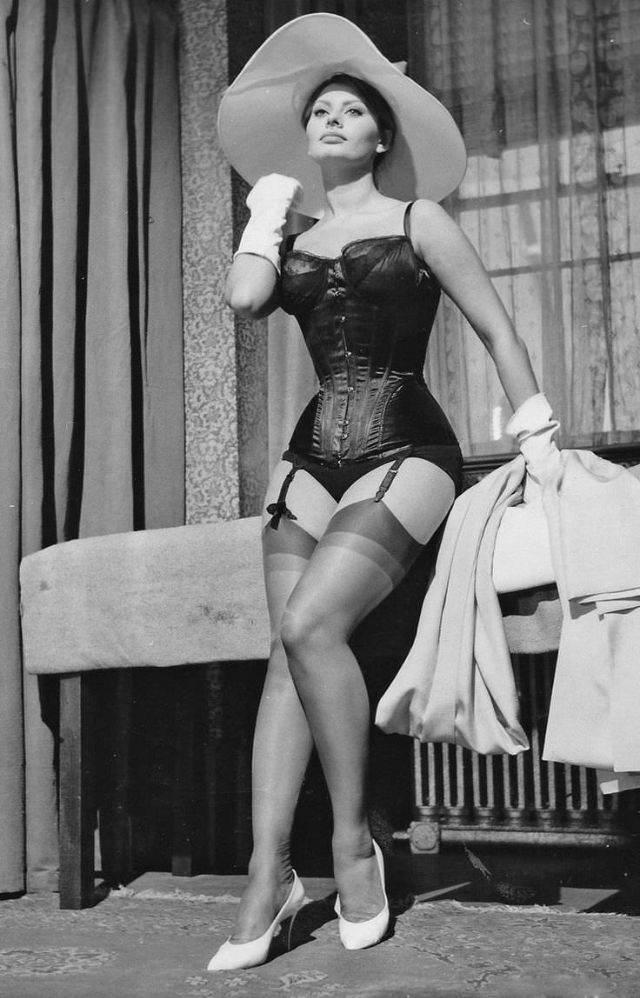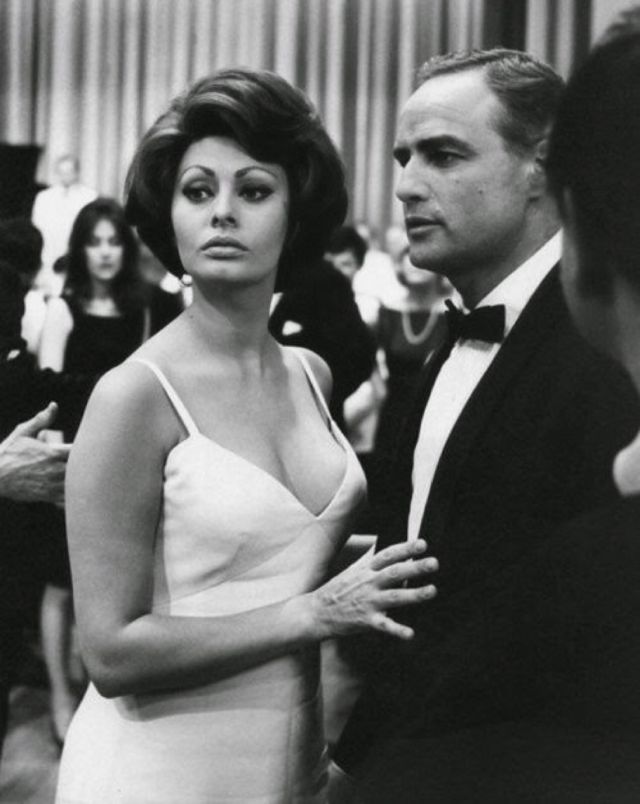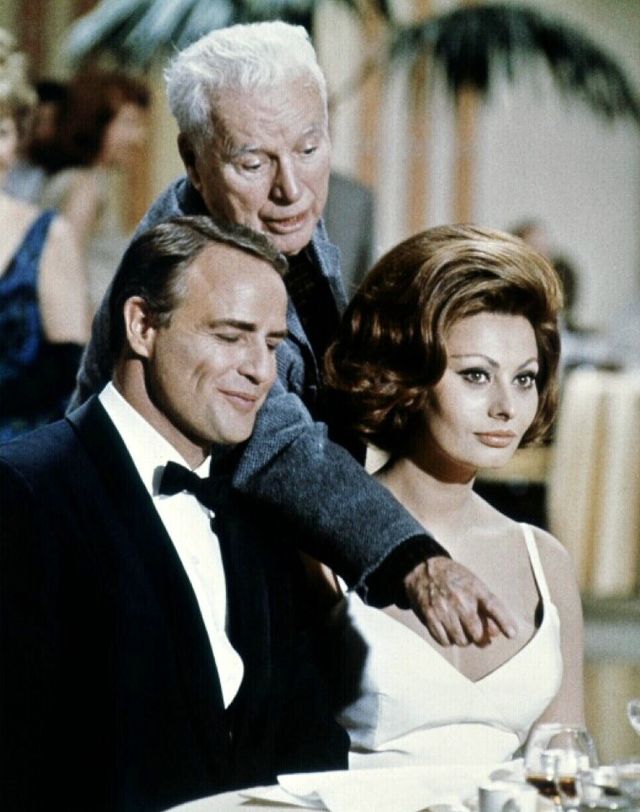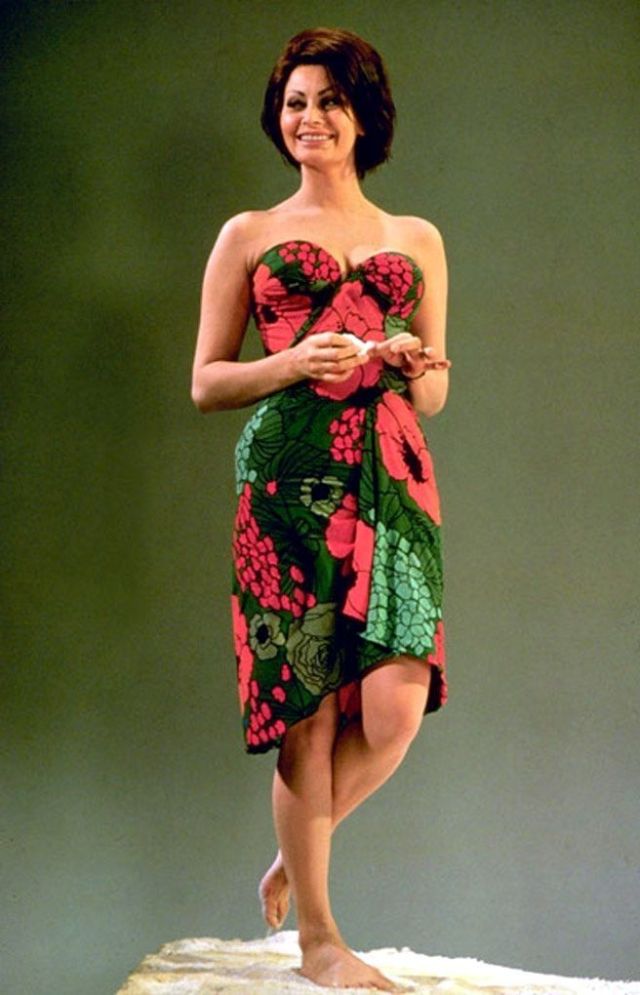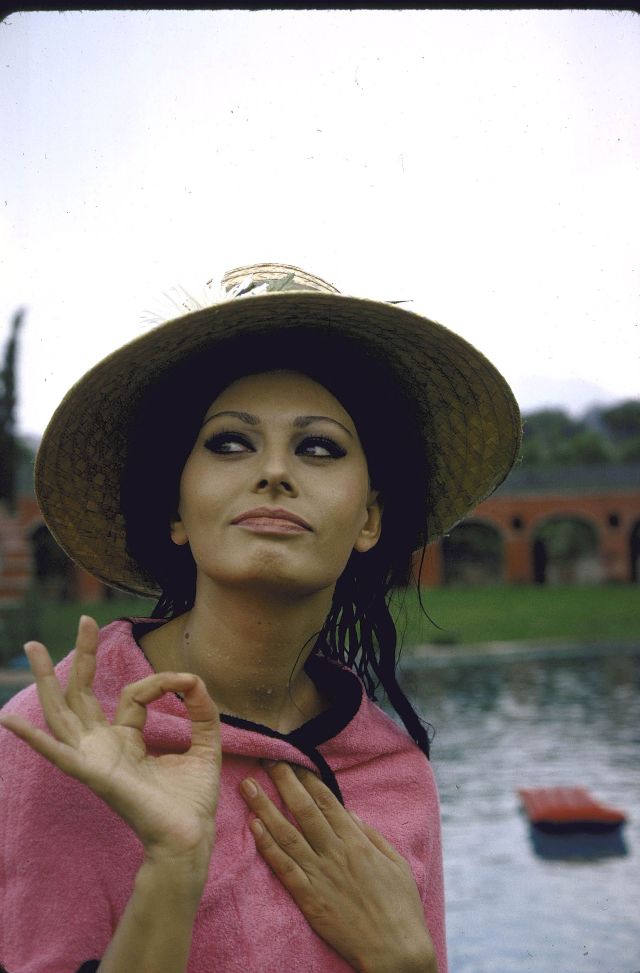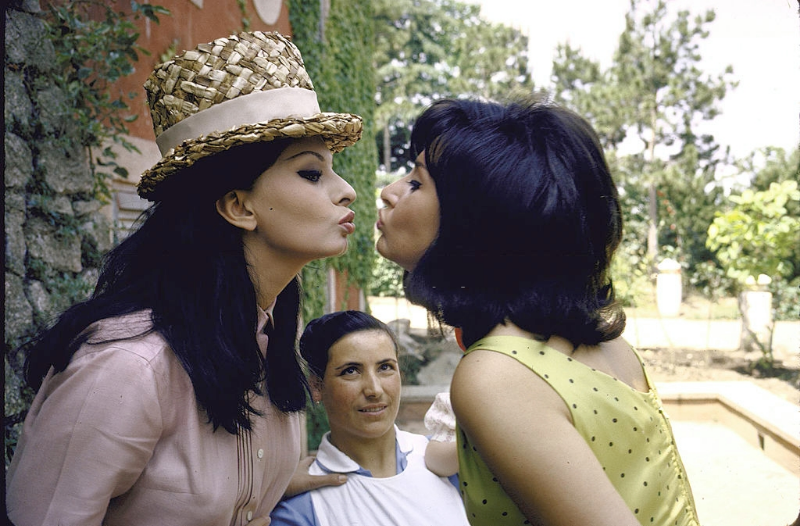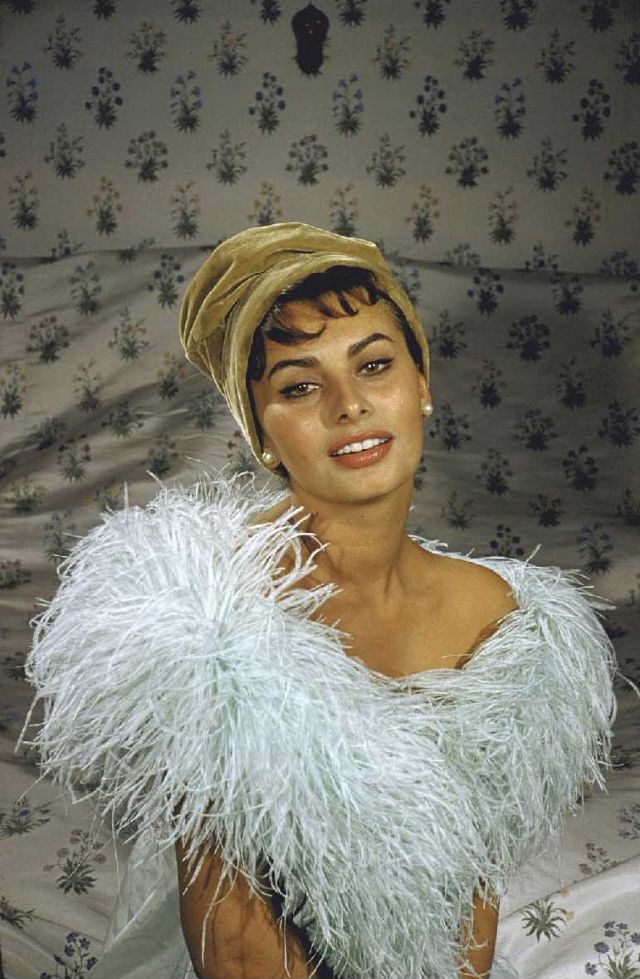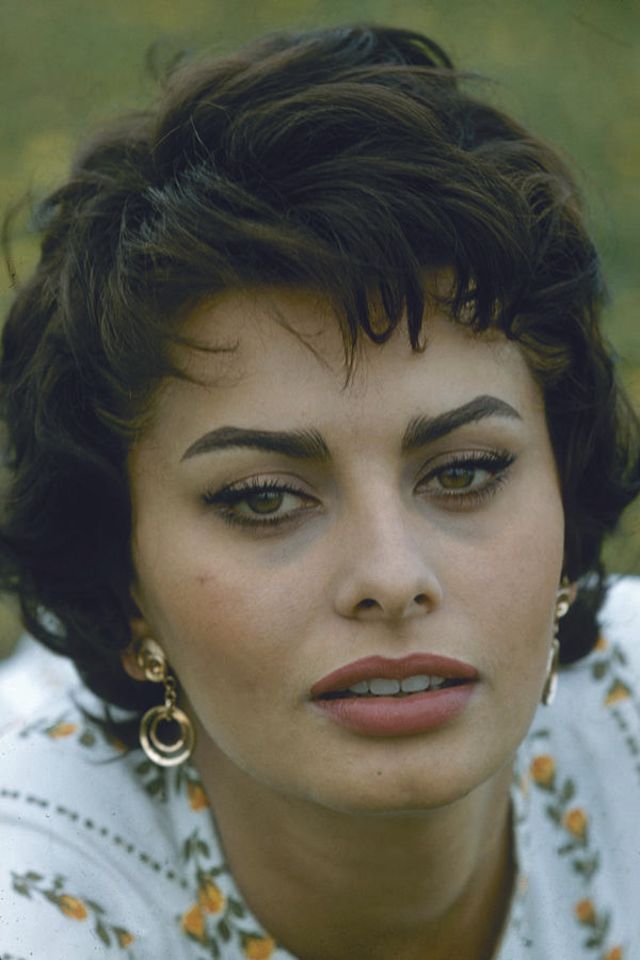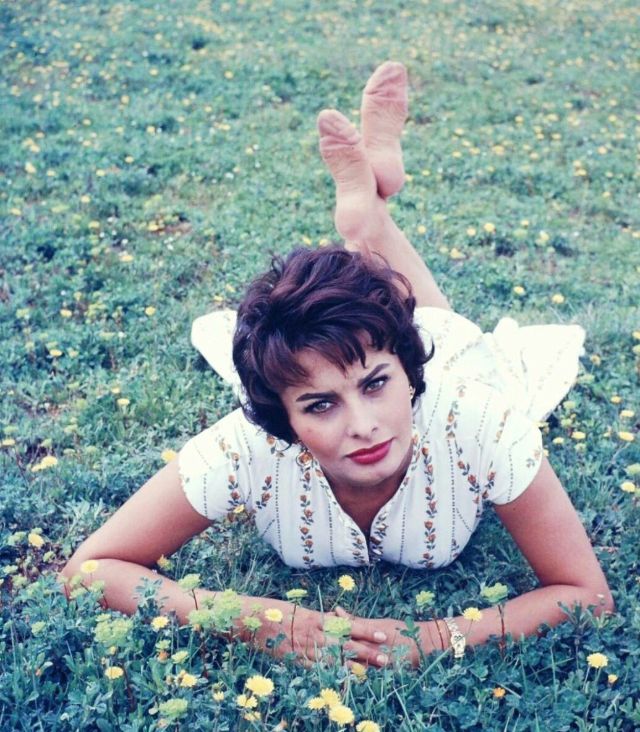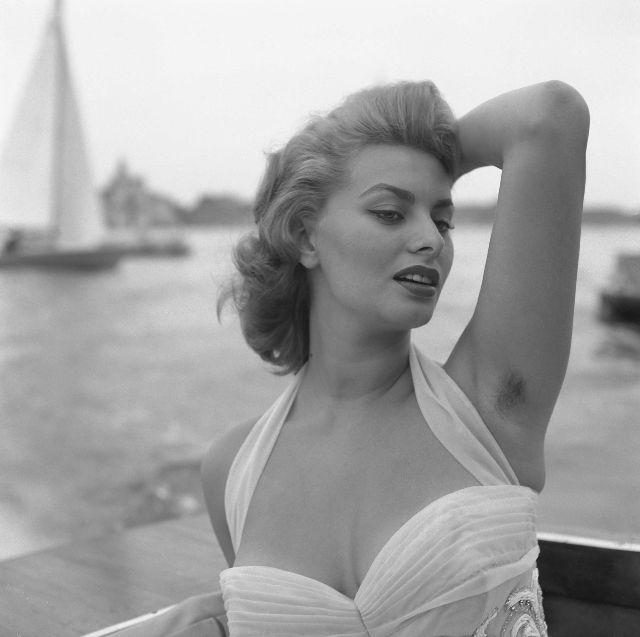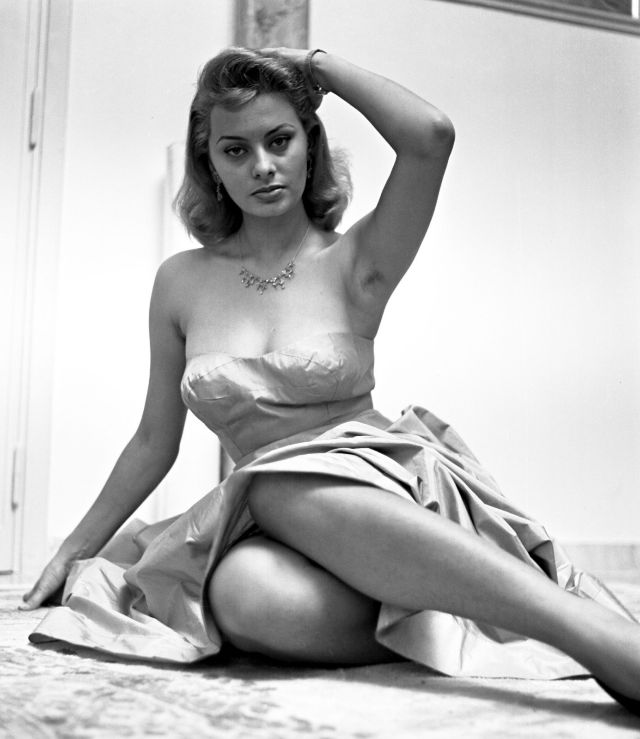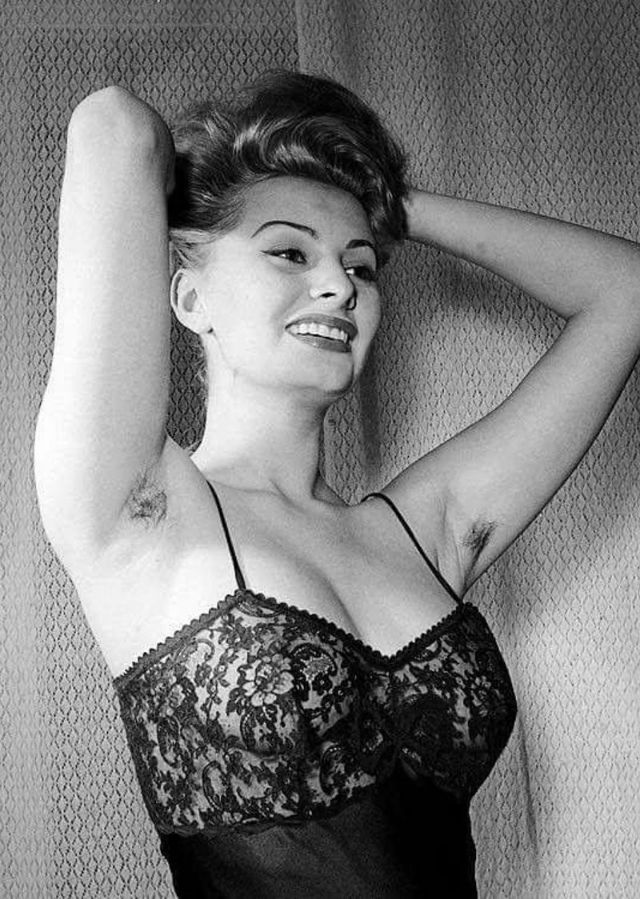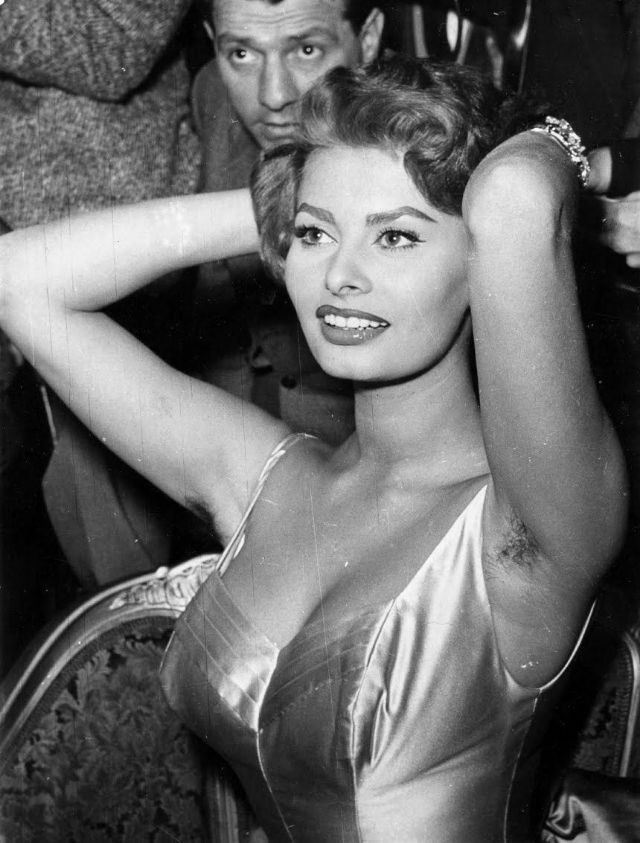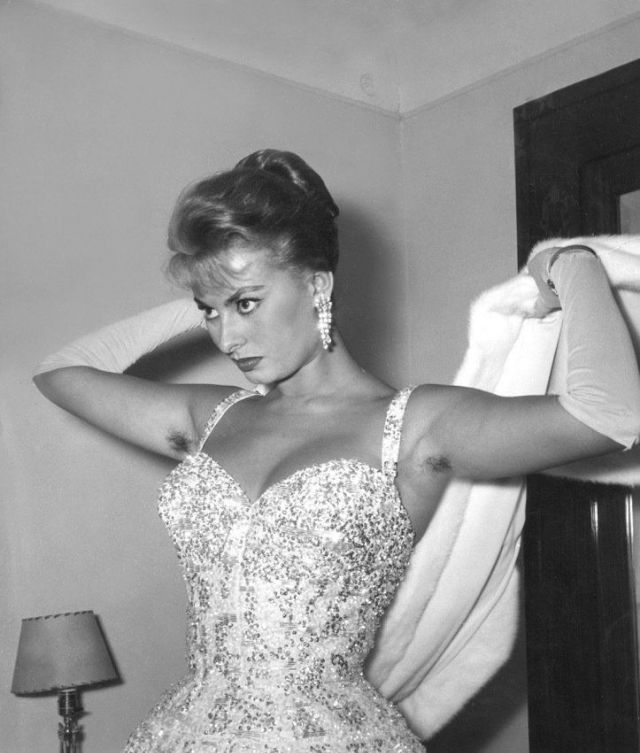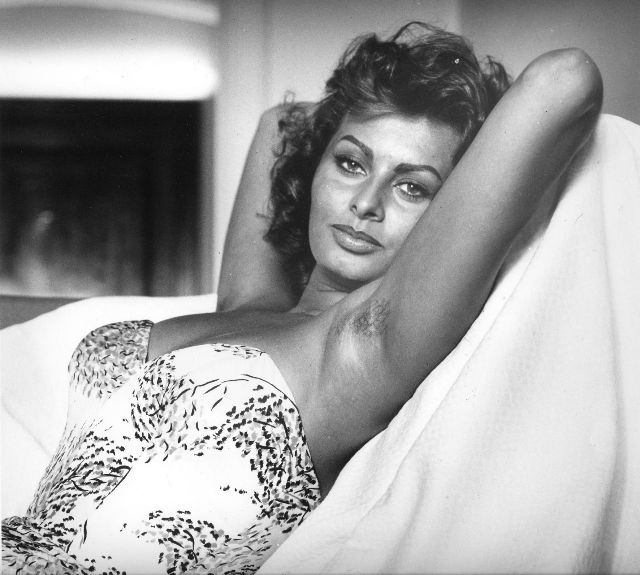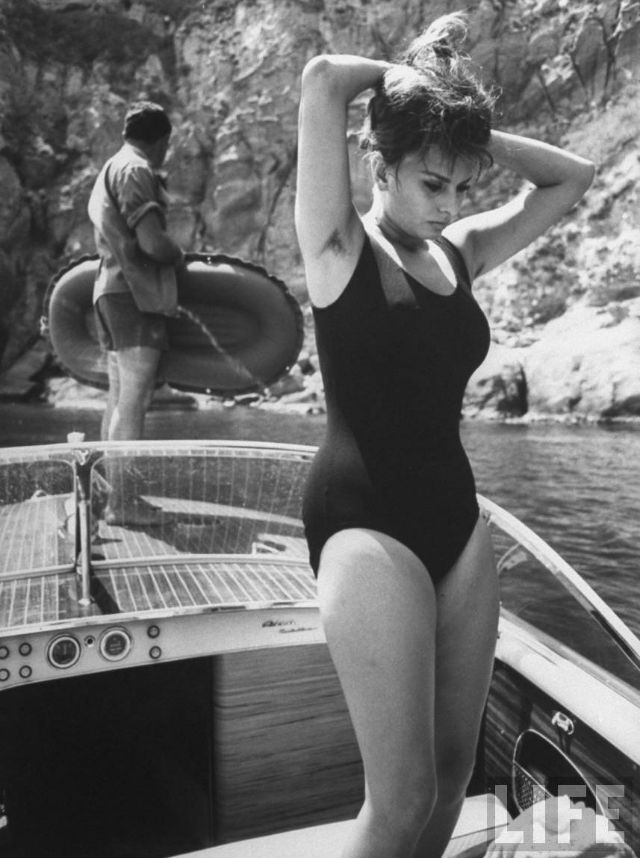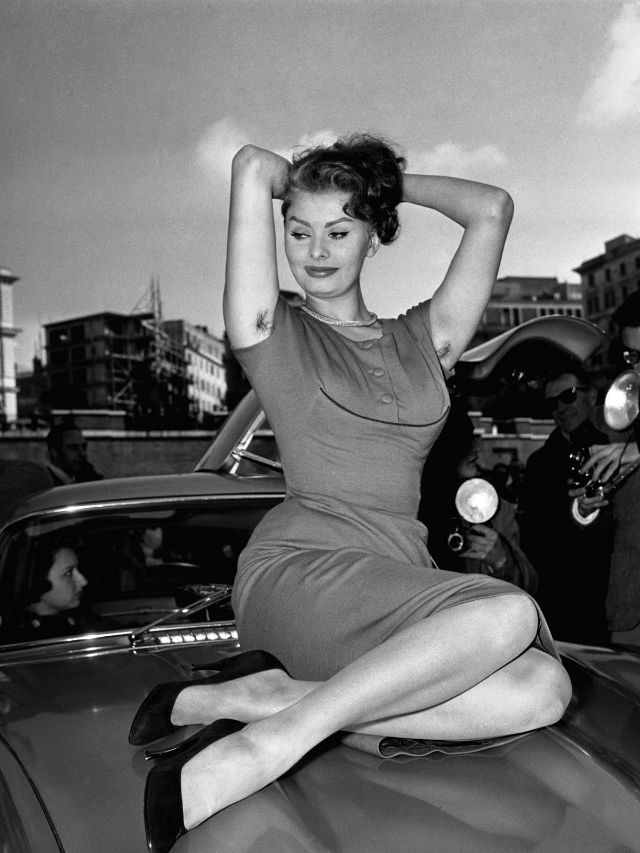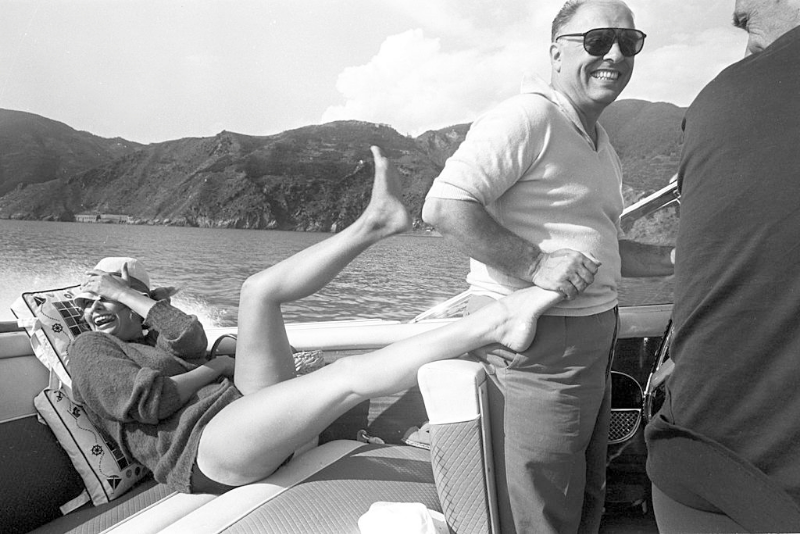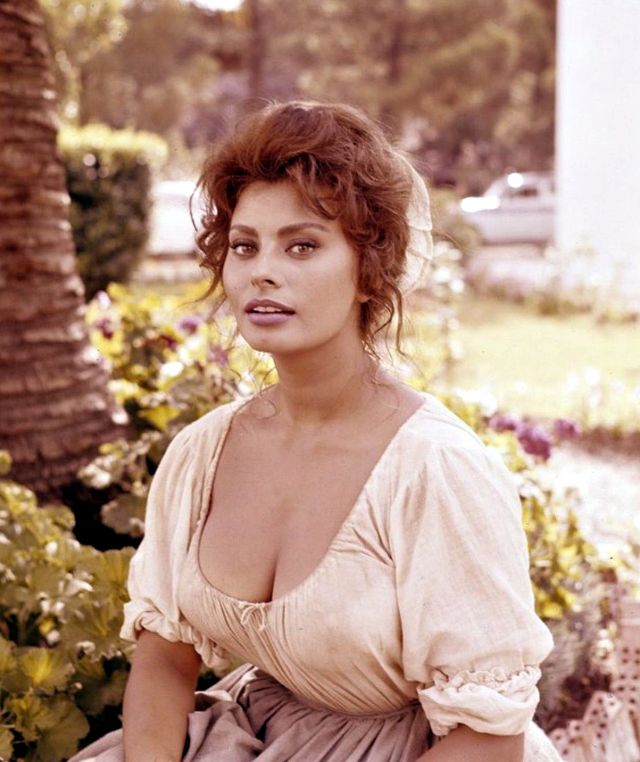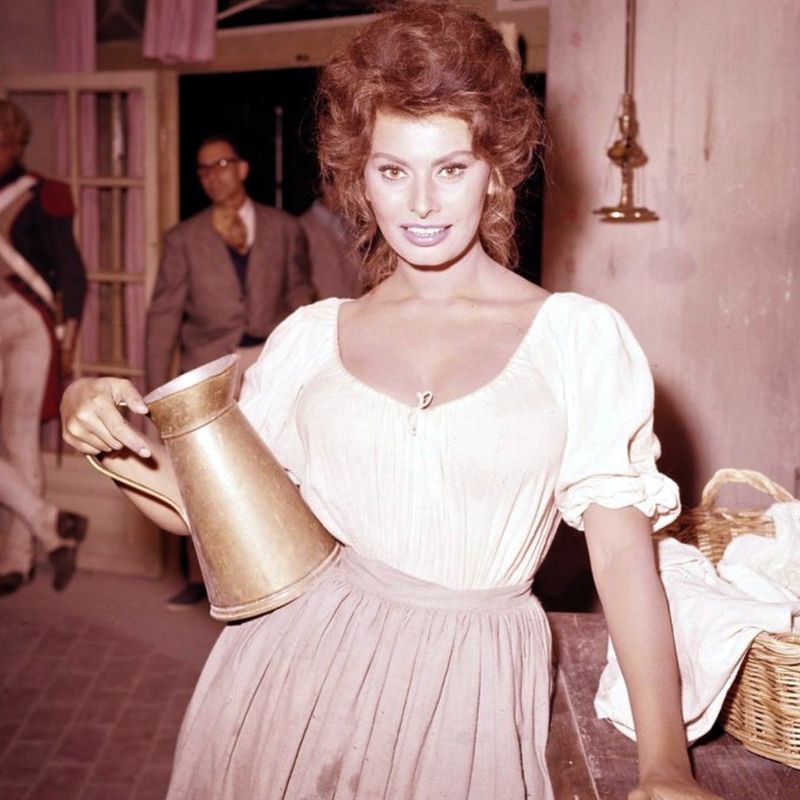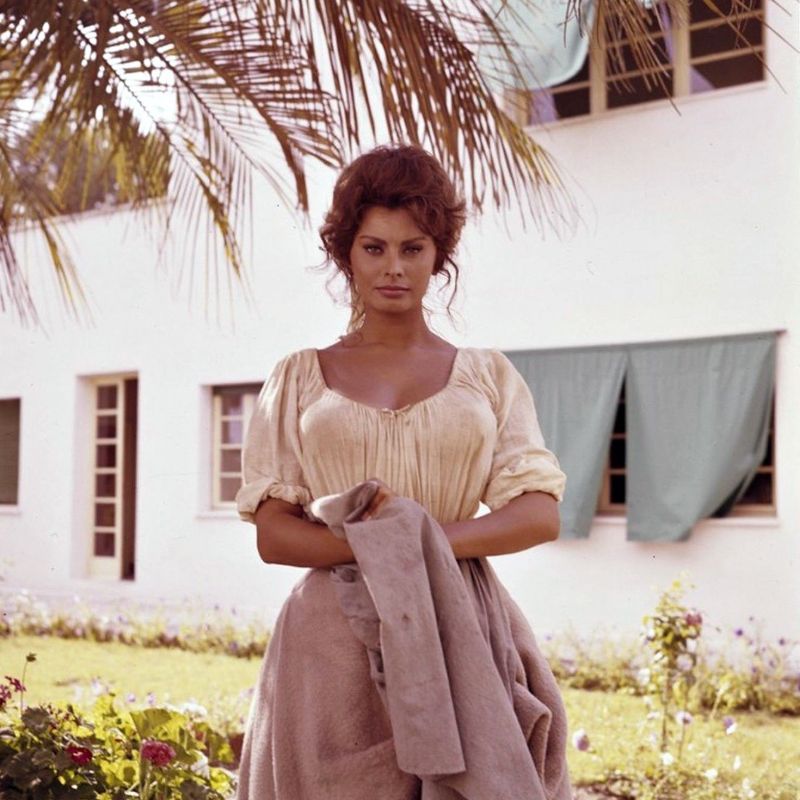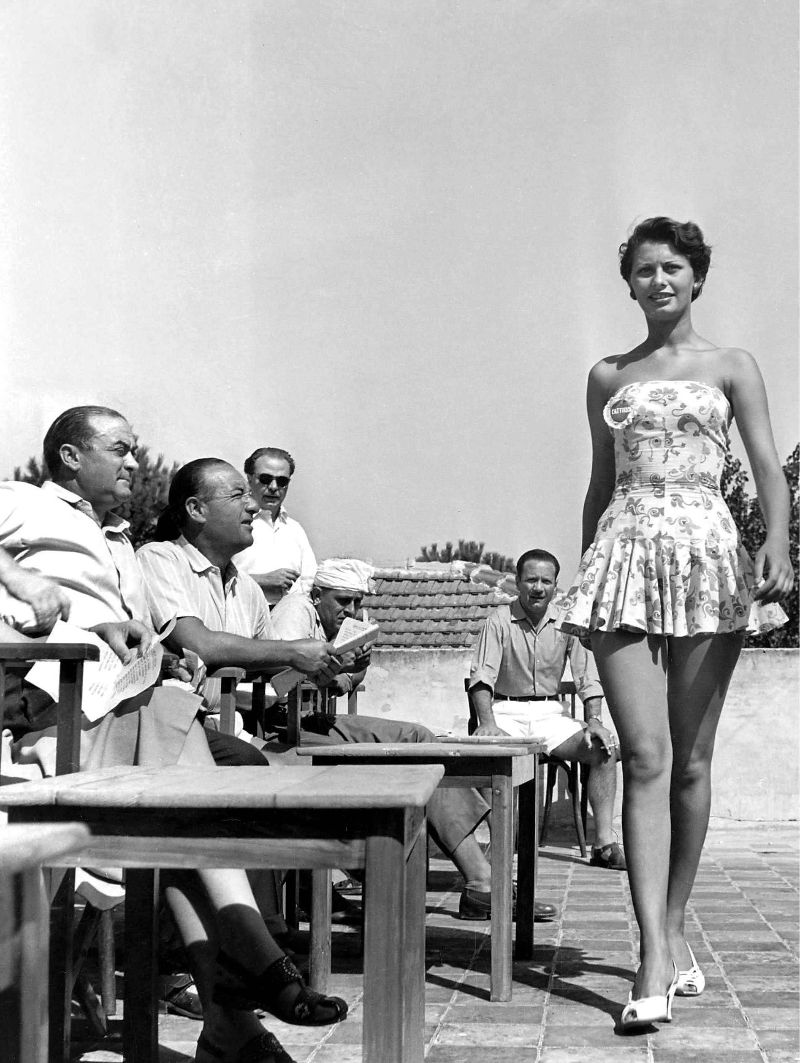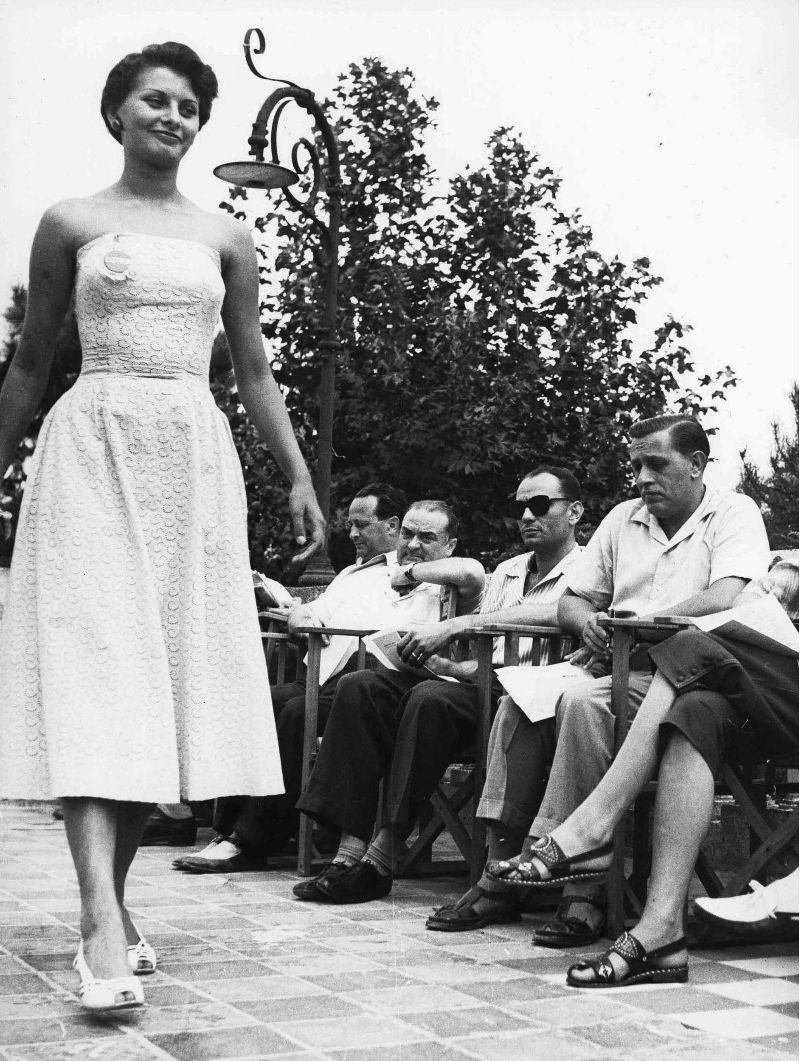She was named by the American Film Institute as one of the greatest female stars of Classical Hollywood cinema. Before working in the cinema, Sofia Scicolone changed her last name to Lazzaro for work in the fotoromanzi, popular pulp magazines that used still photographs to depict romantic stories. Her first film role was as an extra, one of many slave girls in the American production of Quo Vadis? (1951). Under the tutelage of producer Carlo Ponti (her future husband), Scicolone was transformed into Sophia Loren. Her career was launched in a series of low-budget comedies before she attracted critical and popular attention with Aida (1953), in which she lip-synched the singing of Renata Tebaldi in the title role. In 1960, Loren starred in Vittorio De Sica’s Two Women, a stark, gritty story of a mother who is trying to protect her 12-year-old daughter in war-torn Italy. The two end up gang-raped inside a church as they travel back to their home city following the cessation of bombings there. Originally cast as the daughter, Loren fought against type and was eventually cast as the mother (actress Eleonora Brown would portray the daughter). Loren’s performance earned her many awards, including the Cannes Film Festival’s best performance prize, an Academy Award for Best Actress, the first major Academy Award for a non-English-language performance or to an Italian actress. She won 22 international awards for Two Women. The film was extremely well received by critics and a huge commercial success. Though proud of this accomplishment, Loren did not show up to this award, citing fear of fainting at the award ceremony. Nevertheless, Cary Grant telephoned her in Rome the next day to inform her of the Oscar award. During the 1960s, Loren was one of the most popular actresses in the world and continued to make films in the United States and Europe, starring with prominent leading men. In 1964, her career reached its pinnacle when she received $1 million to appear in The Fall of the Roman Empire. In 1965, she received a second Academy Award nomination for her performance in Marriage Italian-Style opposite Marcello Mastroianni. Beginning at the start of the 1980s, Loren chose to make rarer film appearances. Since then, she has appeared in films such as Prêt-à-porter (1994), Grumpier Old Men (1995), and Nine (2009). Loren first met Ponti in 1950, when she was 15 and he was 37. Though Ponti had been long separated from his first wife, Giuliana, he was not legally divorced when Loren married him by proxy (two male lawyers stood in for them) in Mexico on 17 September 1957. The couple had their marriage annulled in 1962 to escape bigamy charges, but continued to live together. In 1965, they became French citizens after their application was approved by then French Prime Minister Georges Pompidou. Ponti then obtained a divorce from Giuliana in France, allowing him to marry Loren on 9 April 1966. They had two children, Carlo Ponti Jr., born on 29 December 1968, and Edoardo Ponti, born on 6 January 1973. Loren’s daughters-in-law are Sasha Alexander and Andrea Meszaros. Loren has four grandchildren. Loren remained married to Carlo Ponti until his death on 10 January 2007 from pulmonary complications.
(Photo credit: Britannica / Wikimedia Commons / Wikipedia). Notify me of new posts by email.
Δ Subscribe
